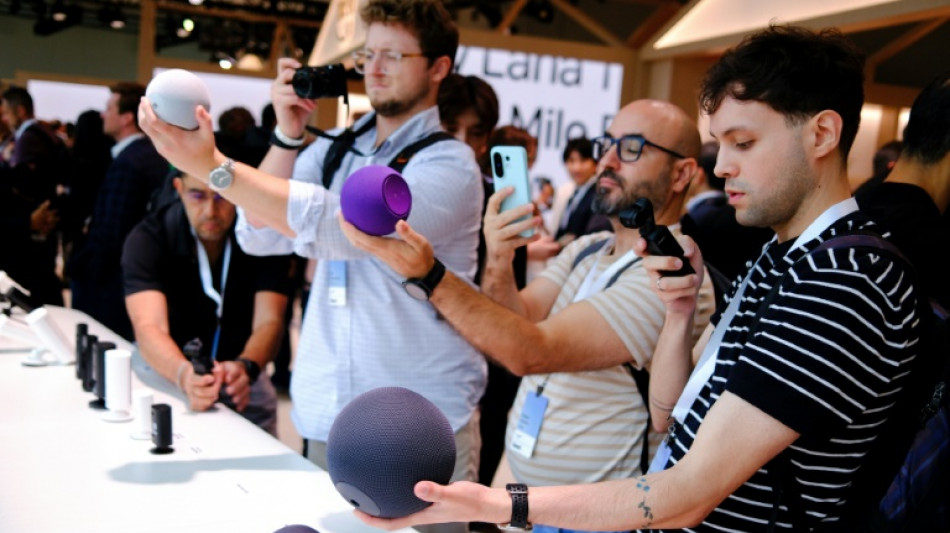

Amazon adds AI muscle to connected home lineup
Amazon on Tuesday unveiled the latest generation of connected products, featuring enhanced artificial intelligence capabilities designed to make interactions with AI more frequent and natural.
Nearly 20 years after the launch of the Kindle e-reader, the Seattle-based online retail giant now offers a family of connected devices, from the Echo smart speaker to the Ring doorbell and Fire TV.
Amazon now aims to multiply their capabilities through AI, but wants to use it "without getting in the way," said Panos Panay, head of devices and services, during a New York presentation.
The company had already made a major move into AI enhancements with the February launch of Alexa+, an upgraded version of the Alexa voice assistant.
Amazon's ambition, like that of competitors Google, LG and Samsung, is to become the connected home nerve center.
But the sector has struggled to deliver on the promise of a fully connected home, with consumers forced to choose from competing ecosystems or left struggling with technology that fails to deliver on expectations.
"Alexa, what happened around the house today?" a user asks in a demonstration video. The smart assistant explains that the children walked the dog, a package was delivered and raccoons rummaged through the trash -- using images captured by Ring or Blink cameras.
Has your dog run away? After the escape is reported on the Ring app, other Amazon doorbells in the neighborhood can detect if the animal passes by and alert you.
With the Kindle Scribe, readers can ask generative AI for a book summary to refresh their memory or ask questions about a character.
As for connected television, viewers can verbally request to see a scene from their favorite movie or receive a summary of a football game they missed.
Amazon believes in "ambient" AI, in Panay's words, which "lives naturally in the products themselves."
The generative AI revolution is playing out on both software and physical interfaces, with major tech players seeking to determine which product will prevail — smartphone, smart glasses, earbuds or speakers.
OpenAI is working on a new kind of device, while Meta is betting on glasses and Apple on earbuds.
K.Schneider--BVZ




